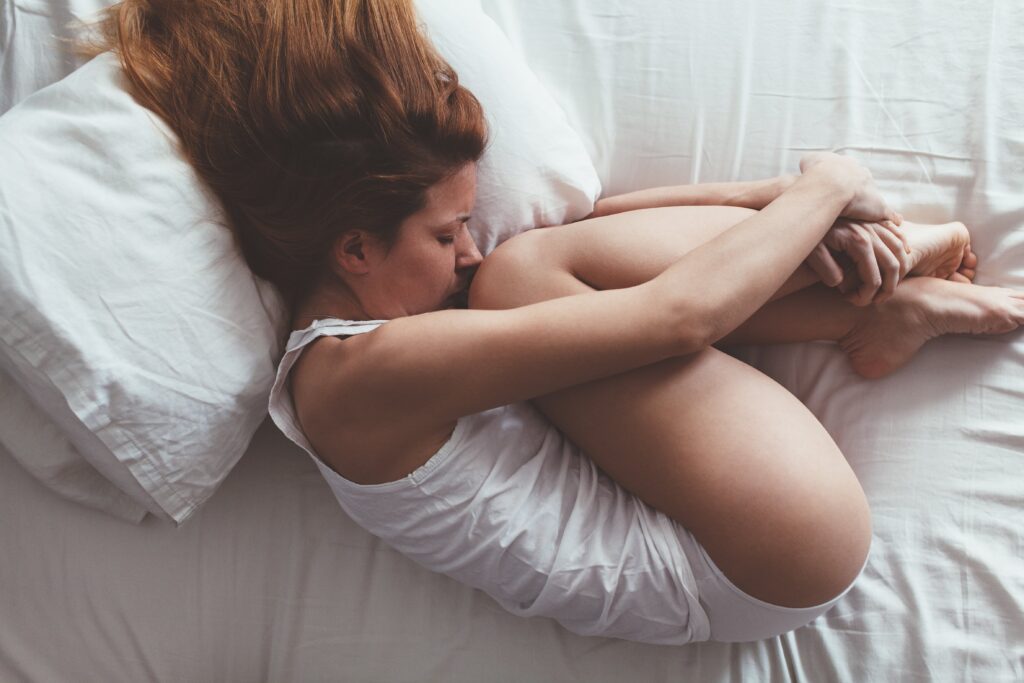
What is Menstrual Pain?
While menstruation usually causes a little pain and discomfort, in some cases it can cause extreme pain that prevents you from going to work or school. This severe menstrual pain is technically called dysmenorrhea. It can occur on its own or may be caused by conditions like endometriosis and pelvic inflammatory disease (PID). This article will discuss the symptoms, causes, and treatment of menstrual pain, and how Chinese Medicine can help.
Symptoms:
Menstrual pain may vary from a slight aching sensation in your lower abdomen, to severe pain or cramps that prevent you from going about your daily tasks. The pain may last for a few minutes or hours or may last for several days. People with menstrual pain may also experience symptoms like:
- Lower back pain
- Nausea, vomiting, or diarrhoea
- Heavy bleeding
- Passing blood clots
- Headaches
- Dizziness
- Fatigue
What Causes Menstrual Pain?
In general, menstrual pain occurs due to contractions of the uterine muscles, triggered by a hormone called prostaglandin. These contractions can cause painful cramps and inflammation. However, menstrual pain could also be caused by conditions like endometriosis, PID, premenstrual syndrome (PMS), and fibroids.
Treatment for Menstrual Pain:
Menstrual Pain: Home Remedies
There are many ways to help soothe menstrual pain naturally. You could try placing a heat pack or hot water bottle on your abdomen, taking a warm bath, eating light, nutritious meals, and doing moderate exercise like gentle yoga or walking. Taking anti-inflammatory medications like ibuprofen can help too. You may also wish to check that you don’t have a deficiency in vitamins like calcium, magnesium, iron, and vitamins B1, B6 and E.
Avoiding certain foods may also help to reduce menstrual pain. These include:
- Salty foods
- Fatty foods
- Alcohol
- Caffeine
- Overly sugary foods
Menstrual Pain: Medical Treatment
If home remedies don’t help your menstrual pain, your doctor may suggest other treatments. The type of medication they suggest will depend on the cause of your menstrual pain. If your pain is caused by an infection, your doctor may prescribe antibiotics. Otherwise, your doctor may suggest nonsteroidal anti-inflammatory drugs (NSAIDs), painkillers, or antidepressants if you suffer from intense mood swings.
Hormonal pills may also be suggested to help control menstrual pain. These work by preventing ovulation. As with any medication or hormonal pill, be sure to research and talk to your doctor before taking them. Almost all medications come with the risk of potential side effects.
If your symptoms are caused by endometriosis, uterine fibroids, or cysts, surgery could be a treatment option for you. Your surgeon may be able to remove unnecessary tissue (like cysts) to help reduce pain. In rare situations, a hysterectomy can be done. This is surgery to remove the uterus. This only done in rare situations, usually when the patient has very severe pain and is near the end of child-bearing age.
How Can Chinese Medicine Help?
Chinese Medicine is an effective holistic treatment for menstrual pain. While other treatments like medications focus on suppressing the symptoms of dysmenorrhea, Chinese Medicine addresses the root cause of your condition.
Our health problems are often caused by underlying imbalances in our bodies. This could be a stagnation in the flow of energy (Qi) throughout the body, an imbalance between heat and cold, or a weaker organ. Acupuncture is a technique that your Chinese Medicine practitioner can use to help address these underlying imbalances. In fact, a scientific study has shown that over 90% of patients with menstrual pain experienced improvements when treated with appropriate acupuncture for three cycles. Acupuncture is a great treatment option, as it can improve your health without the risk of harmful side effects.
Conclusion:
Overall, menstrual pain can be a problematic health condition in some cases. Some people experience menstrual pain for multiple days per month, which may prevent them from doing their daily tasks. Menstrual pain may occur due to muscle contractions of the uterus or may indicate other conditions such as PID or endometriosis. You can soothe menstrual pain most of the time with home remedies like gentle yoga or applying a heat pack. There are also medications available for pain relief. However, Chinese Medicine is also an effective way to treat menstrual pain, as it addresses your underlying health imbalances. This allows a more natural and holistic pathway to healing your body.
References:
Helms J. M. (1987). Acupuncture for the Management of Primary Dysmenorrhea. Obstetrics and Gynecology, 69(1), 51–56. https://pubmed.ncbi.nlm.nih.gov/3540764/
Martel, J. (2020, May 5). What Causes Painful Menstrual Periods and How Do I Treat Them? Healthline. https://www.healthline.com/health/painful-menstrual-periods
